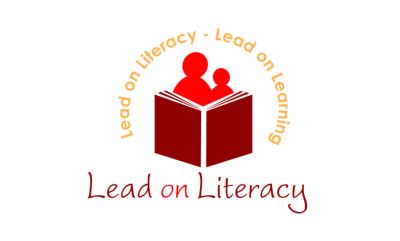16 minutes! That’s all it took. I know because I sent a text before doing it, and then one afterwards to say that I’d done it, and the time elapsed between the two was just 16 minutes. That’s gotta be a record! I’d been putting it off for a while but made the decision to go for it, and it only took 16 minutes. It really was worth the effort, because it wasn’t as bad as I thought it was going to be.
Sometimes we resist the effort. We don’t like the change. We’re comfortable as we are, so why bother doing anything different? Why step out of our comfort zone? Change is often like that, and anyone working in education at the moment is fully aware of the rapid rate of change that we have to deal with. But is it all necessary? Is it all worth it? Is it all for the better?
“Assessment!” we cried. “Without levels?” What about measuring progress, reporting to parents, informing governors, checking up on teachers and the quality of teaching and learning, informing us about the performance of our teachers and the money they deserve, working with children, showing OFSTED how well we’re doing… or not? We were up in arms because it meant we would have to change, and we didn’t believe it would be for the better; we couldn’t see how it would work.We couldn’t see the point and we were happy with our 2bs and 4cs and 3a+s. We wanted to hang on to them.
After spending many months, almost a year now, looking at alternatives and trying to develop our own systems though, it seem that this change might actually be a good one after all. It began to make sense to me as I started reading and researching into the reasons that levels were introduced in the first place (See the Planning assessment without levels article by Dylan Wiliam) and how things had taken a different direction to what had been originally intended. Levels were intended to be used as a summative judgement, but were soon subdivided into termly, half termly, weekly, on going decisions about pupils which could even be made from one short piece of writing. As a consultant going in to schools, I was regularly shown pages from writing books and asked what level I thought that child was at! Is it a level 4c, just a 3a or (unbelievably), I’ve put this one down as a 3a+, but this one as a 4c-, what do you think?
What do I think? I think we need to rethink this. I think we would do better to think about the child who has written this rather than trying to split hairs so that we can show some degree of progress, minimal as it may be, for whatever reason (see above). I also think we are currently ‘making good progress’ with this now. As unpopular as it was to begin with, the shift to assessment without levels is gaining momentum. The balance is tipping in its favour.
After spending time with like minded colleagues in Sheffield at the Learning First, beyond Levels conference today, I am even more convinced that we are moving in the right direction and that we are starting to see, to pinch a metaphor from Stephen Tierney , the moon behind the clouds. There was so much positivity about the change today, that anyone there could not have come away without having had their thinking changed in a positive way. Renowned speakers from across the landscape of education and the country (including Whitby!) showed us how positive this movement is becoming. Have a scroll through the twitter stream #LearningFirst and you will see and feel the positivity.
We can assess without levels, and as Mick Walker reminded us, that’s what teachers always used to do. Teachers made judgements about what children could do, or couldn’t, about what they knew, or didn’t and then tried to teach them what was lacking. Then they assessed how much of this they had taken on board: “simple as that” to quote the final speaker of the day. How have we moved so far away from that? Isn’t that what teaching is? Isn’t that how we help children to develop as leaners, as children?
As Sean Harford told us, “we have lost the great skill of curriculum development” we have lost so many teachers who could do this and then assess how well a child had progressed in a range of these areas without the need for numbers and levels and spreadsheets. But, as Alison Peacock reminded us at the end, we are “changing the narrative from one of deficit to one of positivity.’
The balance is tipping, and I felt so positive afterwards that I went and did something I’ve been putting off for a long time. I bought some new shoes. In 16 minutes! Bonus!

A really interesting read which reflects on what was obviously a really interesting day. There remains much to consider. The challenge I feel for leaders, particularly of schools under scrutiny or vulnerable to scrutiny comes in taking the risks required to pull back from over tracking or over assessing and allowing all to focus on the curriculum design and innovation required to move learning forward. But risk take we must if we are to address some of the difficulties facing schools currently. I agree with many of the tweets related to this on the #learningfirst around paying attention to the learning and the data will sort itself, responding to what is important and not just leave marks.
Interested in hearing more!
LikeLiked by 1 person
Yes much to consider! The theory behind the what and the why of assessment is pretty straight forward in my mind. It’s the practice which is the tricky part due to the wide ranging demands from all concerned and involved.
LikeLike